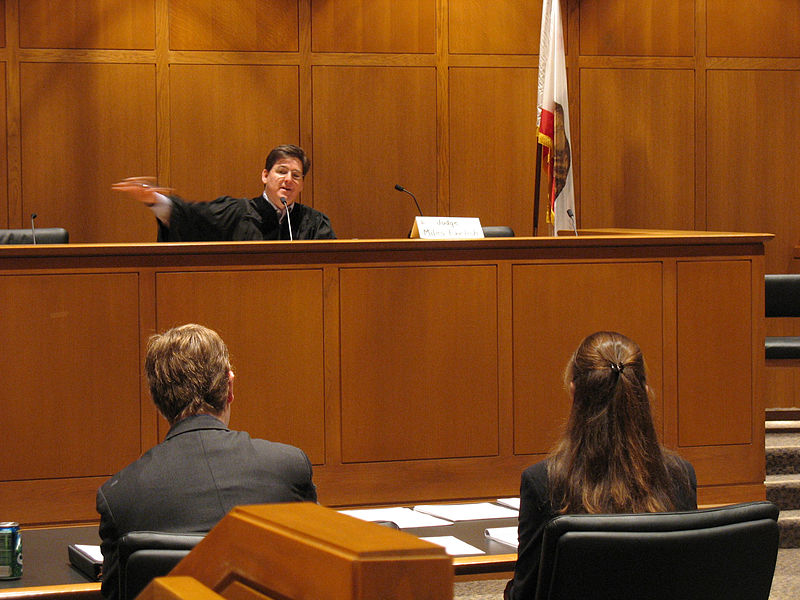
Civil Litigation in Hungary
In case a dispute concerning a civil matter occurs and subsequently no settlement is reached between the parties, most of the times the issue will be dealt with before the competent court pursuant to the rules laid down in the Civil Procedure Act.
Courts
In Hungary currently there is a four-tier court system: there exist more than a hundred district courts which deals with cases concerning for instance family law, condominium, inheritance, property (as well as joint property) and generally contracts about assets where the amount of the dispute does not exceed 30 million HUF. At the local level there are also the administrative and labour courts to speak of in connection with employment matters and when it comes to reviewing administrative decisions. The second level of the court structure is the district courts which can also operate as first instance in given cases such as contracts where the amount of the subject matter exceeds 30 million HUF, matters concerning copyrights, rescinding the company registration order or issues where the rights relating to personality were violated. The district court constitutes an appeal court if the dispute starts at the local court level. In case the procedure commences at the district court, the appeal court will be the so called regional court of appeal. The fourth step of the court system is the Curia which is equivalent to the Supreme Court in other countries.
Principles
Throughout the procedure there are certain principles which the parties and the courts have to comply with. Part of them are regulated in the constitution, others in the Civil Procedure Act, such as that the procedures begin with a request, the parties have the right to use their own language, the procedures are generally conducted orally, the court has to give information about the producing of evidence (burden of proof) and the hearings are public. It’s also relevant to mention that usually it is mandatory for the parties to have legal representation.
Procedure
The civil litigation procedure begins with the filing of the claim by the plaintiff. Upon receiving the claim, the court has 30 days to reach a decision about the suitability. Afterwards the court gives notice to the defendant about the procedure and about the time and place of the first hearing which has to be within 4 months’ time. In the first hearing the defendant has the possibility to submit his own defense in the matter. He can request that the claim should be dismissed on the grounds that the court lacks jurisdiction or competence, that the plaintiff has no legal capacity or that the claim is premature or the limitation period has passed. The defendant can also ask the court to reject the claim on the merits. The latter has to be supported by evidence after the court gives information about the burden of proof: that party has to submit the evidence, namely documents (except for classified information when no approval is granted for using it), witnesses, experts, who has the interest for it to be accepted as true by the court. After the judges – or in local courts the judge or in some cases the judge and two laying judges – have all the relevant information, the court will give its judgment against which appeal can be submitted within 15 days from the delivery. In the first instance phase interim injunction can also be requested if an instant damage threatens the subject matter or in order for the status quo to be maintained and if the advantage to be attained by this kind of injunction exceeds the possible disadvantages. In practice the first instance procedure in civil cases can last from one to three years.
The second instance procedure commences if appeal can be submitted and if the deadline is held. The regional court and the regional court of appeal which consist of 3 judges will give the judgment in these cases. They can abolish the judgment of the first instance, the district courts or the regional courts, respectively, or they can alter it in parts or entirely and there is also the possibility to rescind it. Even though the final judgment cannot be appealed, there are two types of special remedies in the Hungarian legal system. The first is the retrial which can be requested if there is new information which was not relied upon before and it is strongly presumed that it would have caused a more advantageous outcome. Retrial can also be asked for if the case shouldn’t have been tried because of res iudicata. The second remedy is the judicial review for which the Curia has competence in cases where law was violated. It is important that the violation has to have an impact on the merits of the case, otherwise the Curia will sustain the final judgment.
Special procedures
Apart from the above mentioned general rules, the Hungarian civil procedure gives opportunity for the application of special rules when it comes to matrimonial cases, establishment of paternity, termination of parental custody, media remedy, enforcement actions, contracts of employment, placement under guardianship or conservatorship. The Act also regulates small claims issues, that is, if the amount of the dispute is under 1 million HUF and matters which bear special relevance, in which case the amount exceeds 400 million HUF.
Procedural costs
According to the general rule, legal expenses has to be paid by the losing party. If the claim is only partly accepted or denied, the costs can be divided proportionally or in some cases equally. Special circumstances can bind also the plaintiff, for instance if the defendant provided no cause for the procedure to start with and simultaneously acknowledges the claim at the first hearing or if the plaintiff acted in bad faith or delays the ending of the procedure.
The legal expenses consist of the lawyers’ fee (which can be task-based or hourly billing and it can include a success fee) regulated in the retainer agreement or determined by the court. Furthermore, the expert’s opinion and if need be, presence in the hearing has to be advanced by the party who requested the appointment. Before or at the same time as the claim is submitted, the court fee duty has to be paid by the plaintiff. The amount of the stamp duty is 6% of the amount of the dispute, but must be at least 15.000,- HUF and cannot be more than 1.500.000,- HUF. If the basis of the stamp duty cannot be determined, certain amounts have to be considered as such (district courts: 350.000,-HUF, regional courts as first instance: 600.000,-HUF; regional courts as second instance: 300.000,- HUF, regional courts of appeal: 600.000,- HUF and the Curia in appeal cases: 500.000,- HUF, in judicial review matters: 700.000,- HUF). Additional procedural costs include the fee of the translator, compensation of witnesses and fee when a survey has to be issued which is conducted on the premises of the property. The state also offers some legal aid (partly or entirely) for those whose pecuniary circumstances such as their income would not let them to exercise their rights before the court.
Alternative dispute resolution (ADR)
In Hungary two ADR method is known, namely arbitration and mediation. Whereas in practice mediation is quite insignificant, arbitration is more widely used and is regulated by the Act LXXI of 1994. Arbitration can only commence if such a request is made and if there is a contract between the parties on the subject and if at least one of the parties conducts economic activity. Most of the times arbitration is used if a company is involved in the dispute. The most relevant difference between arbitration and the court proceedings is that in case arbitration is requested, the parties have the power to appoint the judges. Moreover, evidence is usually documents instead of witnesses and experts and although the procedure itself is still public, in practice it is more likely that it will be confidential even though as of today no such obligation exists in the Hungarian legal system.
Questions regarding civil procedures in Hungary? Contact us!
E:dobos@doboslegal.eu
T:+3630 3088151




